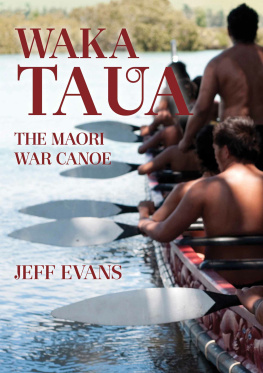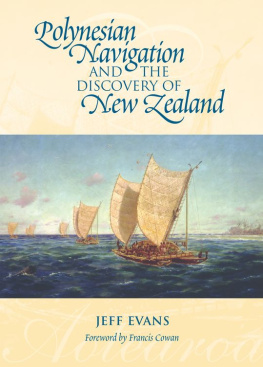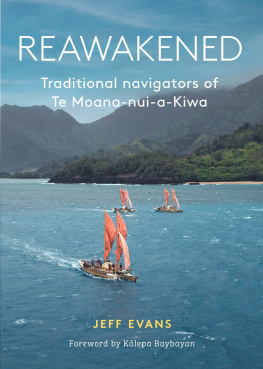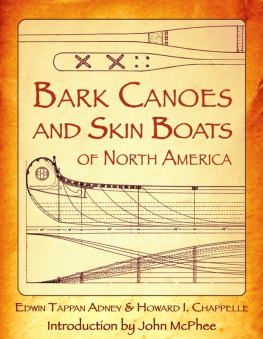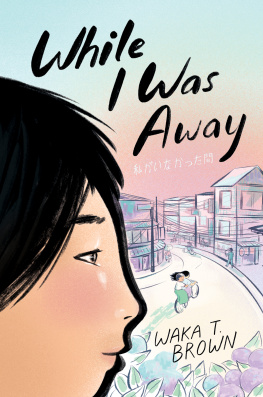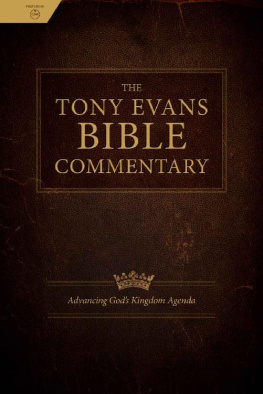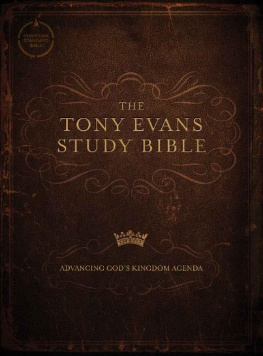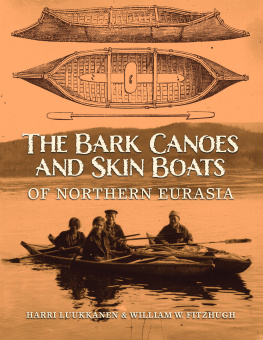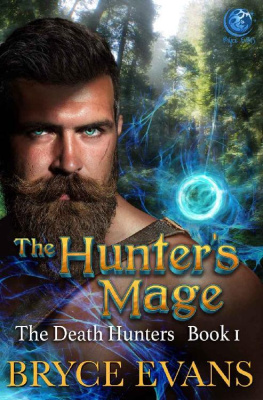Jeff Evans - Nga Waka o Nehera: The First Voyaging Canoes
Here you can read online Jeff Evans - Nga Waka o Nehera: The First Voyaging Canoes full text of the book (entire story) in english for free. Download pdf and epub, get meaning, cover and reviews about this ebook. year: 2009, publisher: Libro International, genre: Religion. Description of the work, (preface) as well as reviews are available. Best literature library LitArk.com created for fans of good reading and offers a wide selection of genres:
Romance novel
Science fiction
Adventure
Detective
Science
History
Home and family
Prose
Art
Politics
Computer
Non-fiction
Religion
Business
Children
Humor
Choose a favorite category and find really read worthwhile books. Enjoy immersion in the world of imagination, feel the emotions of the characters or learn something new for yourself, make an fascinating discovery.

- Book:Nga Waka o Nehera: The First Voyaging Canoes
- Author:
- Publisher:Libro International
- Genre:
- Year:2009
- Rating:3 / 5
- Favourites:Add to favourites
- Your mark:
- 60
- 1
- 2
- 3
- 4
- 5
Nga Waka o Nehera: The First Voyaging Canoes: summary, description and annotation
We offer to read an annotation, description, summary or preface (depends on what the author of the book "Nga Waka o Nehera: The First Voyaging Canoes" wrote himself). If you haven't found the necessary information about the book — write in the comments, we will try to find it.
Jeff Evans: author's other books
Who wrote Nga Waka o Nehera: The First Voyaging Canoes? Find out the surname, the name of the author of the book and a list of all author's works by series.
Nga Waka o Nehera: The First Voyaging Canoes — read online for free the complete book (whole text) full work
Below is the text of the book, divided by pages. System saving the place of the last page read, allows you to conveniently read the book "Nga Waka o Nehera: The First Voyaging Canoes" online for free, without having to search again every time where you left off. Put a bookmark, and you can go to the page where you finished reading at any time.
Font size:
Interval:
Bookmark:
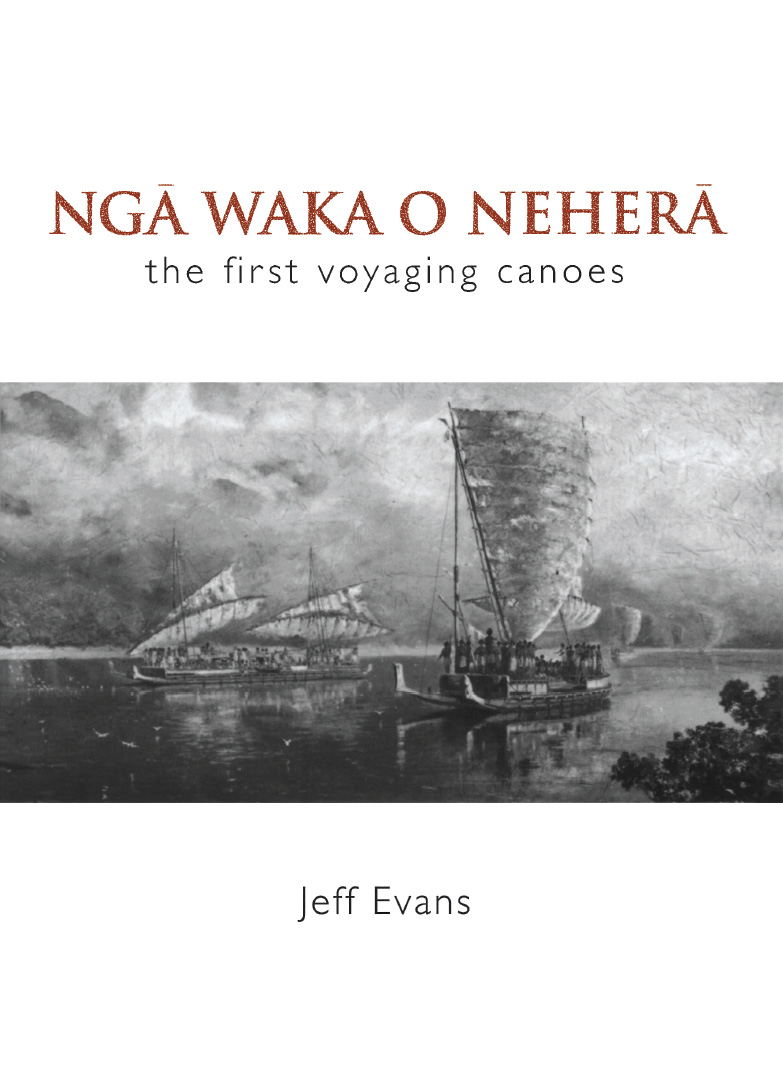
Published by Libro International, an imprint of Oratia Media Ltd, 783 West Coast Road, Oratia, Auckland 0604, New Zealand (www.oratiamedia.com).
Copyright 1997, 2009 Jeff Evans
The author asserts his moral rights in the work.
This book is copyright. Except for the purposes of fair reviewing, no part of this publication may be reproduced or transmitted in any form or by any means, whether electronic, digital or mechanical, including photocopying, recording, any digital or computerised format, or any information storage and retrieval system, including by any means via the Internet, without permission in writing from the publisher. Infringers of copyright render themselves liable to prosecution.
ISBN 978-1-877514-19-7
First published 1997 by Reed Publishing (NZ) Ltd
This edition 2009 by Libro International
The cover shows a detail from Kennett Watkins 1912 painting The Legend of the Voyage to New Zealand. Auckland Art Gallery Toi o Tamaki.
Printed in New Zealand
T his book is the culmination of years of research and writing over which time I have been fortunate to receive advice and assistance from a number of people.
Initially, encouragement from Te Warena Taua (formerly of the Auckland Museum), Roger Neich (Auckland Museum) and Ian Watt (formerly of Reed Publishing) gave me the confidence and impetus to write this book. Without their input the project would not have got off the ground.
Thanks go to the following people and libraries for their assistance during my various stages of research: Janice Chong and her team at the Auckland Museum Library; Manuela Angelo and her team at the Hector Library; the Alexander Turnbull Library; and the National Library. Suggestions and advice from the numerous staff I beleagured with my requests for ideas on further research material were invaluable.
A special thanks also goes to Hoturoa Kerr of Te Tari Maori, Te Whare Wananga o Waikato, for writing the foreword.
Once the easy part of researching and writing the book was completed, Peter Janssen and Alison Southby at Reed Publishing displayed the patience of saints when assisting me to tidy up and present a workable manuscript. A heartfelt thanks to them both.
Finally I need to thank my long-suffering wife Fuli, who did everything from rescuing my work when the computer crashed to putting up with my absence when I locked myself away night after night trying to keep up with the writing timetable, and for reading and rereading my work in the process, finding what seemed to be hundreds of spelling and grammatical errors. Thank you.
E ng mana e ng reo, tn koutou katoa. Ki ng mtua ki ng tpuna kua wehe atu ki te whi ngro, whakawhitia ng moana tau atu r ki Hawaikinui, ki Hawaikiroa, ki Hawaiki-pmamao.
For hundreds of years Mori have recited stories of the seafaring adventures of their ancestors. Despite the theories of many anthropologists and scholars the feats of these ancestors have remained as something to be admired and believed in. However, as time has continued on in its ever advancing way many people have grown up in the belief that only a handful of intrepid voyagers made it to Aotearoa in a band of seven waka that travelled together in a fleet type of voyage. This romantic image of the arrival of Mori to these shores is often the only description that reaches New Zealanders as they pass through the educational processes of this country.
If one took the time however to look closely at the stories and songs that describe the voyages and the eventual settlement of Aotearoa by the Mori one will find a wealth of information and a startling number of accounts of waka that travelled here. The idea of seven waka voyaging together pales into insignificance when one is confronted with the numbers of voyaging waka that can be traced through traditional sources.
In his efforts to trace the seafaring heritage of his own family and to record this information for them, the author has written a book that illustrates just how many waka played a part in the settlement history of this country. Those waka we are all familiar with are encountered, but we also find waka whose history has faded to the point where only the names remain. This in itself should be seen as a challenge to all those interested in the waka history of Aotearoa. It challenges us to find out more about the voyaging heritage of our ancestors. It challenges us to seek answers whether it be through asking acknowledged experts in those fields or researching old history books and song recordings. No doubt some people will know stories that differ in some aspects to those that this book presents. Be that as it may, the list of ancient waka names that this work provides reinforces the voyaging heritage of a people who were once the bearers of significant technological and scientific know-how.
We were once a voyaging people. As Captain Cook found out, our ancestors discovered minute specks of land in a vast ocean centuries before his own people would venture beyond the sight of land. Eventually we will all make that final voyage across the vast ocean to Hawaiki-nui. In the meantime we can still voyage with our ancestors through their stories and we can continue on personal voyages of discovery as we trace the lost traditions and stories of those waka who remain with us in name only.
Books such as this, coupled with the renaissance in traditional voyaging and navigational techniques by Hawaiians and Mori with the construction and successful journeys of waka such as Hokulea in the 1970s and Te Aurere in the 1990s will certainly maintain the seafaring histories of not only Mori but Polynesian culture for many generations to come.
E kore au e ngaro, he kkano i ruia mai i Rangitea
Hoturoa Kerr
Te Tari Mori
Te Whare Wnanga o Waikato
T his book came about from a desire to bring together as many of the written traditions as possible for each of the waka that voyaged to Aotearoa during the earliest period of Polynesian exploration and migration to Aotearoa. In each case, as much information has been presented for the reader as possible, allowing an across the board view of details recorded for each particular waka tradition. After each entry a list of the sources used is listed for those wishing to look further into any particular tradition, or for those who may wish to question any information offered. I have avoided a personal commentary in all but one or two entries, leaving it to the reader to choose between the varying versions.
Naturally there will be many points that will be strenuously debated, and any discussion is to be encouraged. It should be noted, however, that this is a collection of traditions gathered since Europeans first arrived in Aotearoa, and as with any oral tradition, there will be contradictions with contemporary traditions. Suffice to say there are problems surrounding collecting written traditions and oral traditions alike. Misinformation can be provided, and important details can be lost or inadvertently corrupted as tradition passes from one mouth to another. Taking this into account, it would seem pointless to argue whether a statement recorded over 100 years ago is valid, when the challenge comes from a source quoting oral history.
On the other hand, some sources used have been questioned in the last decade or two, with claims against their authenticity strongly voiced. Such works as The Ancient History of the Maori and The Lore of the Whare Wananga have been largely discredited, with claims suggesting large portions of both works were either falsified or have had so much European input as to make them invalid for historical purposes. Despite such claims, all information gathered has been included, with references used for each entry listed. This will allow those who wish to delve deeper the opportunity to study the original reference.
Font size:
Interval:
Bookmark:
Similar books «Nga Waka o Nehera: The First Voyaging Canoes»
Look at similar books to Nga Waka o Nehera: The First Voyaging Canoes. We have selected literature similar in name and meaning in the hope of providing readers with more options to find new, interesting, not yet read works.
Discussion, reviews of the book Nga Waka o Nehera: The First Voyaging Canoes and just readers' own opinions. Leave your comments, write what you think about the work, its meaning or the main characters. Specify what exactly you liked and what you didn't like, and why you think so.

